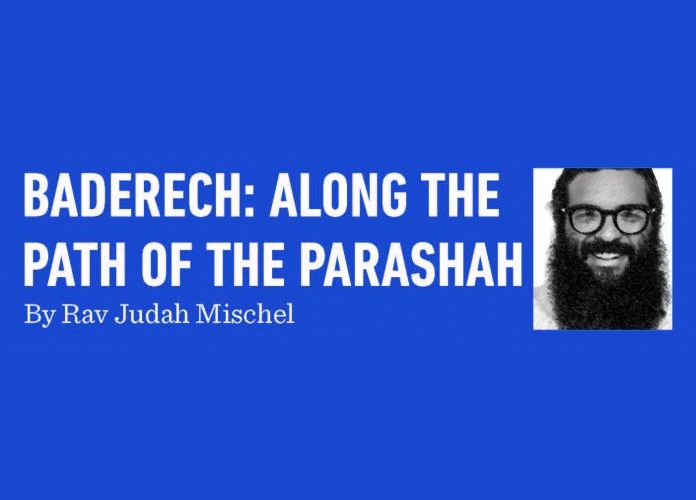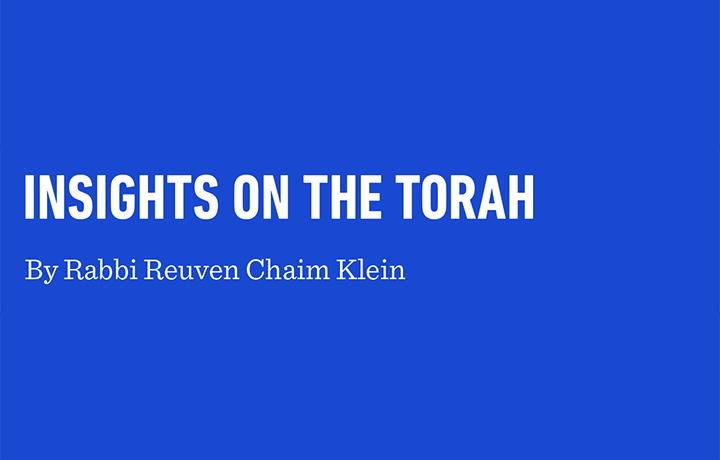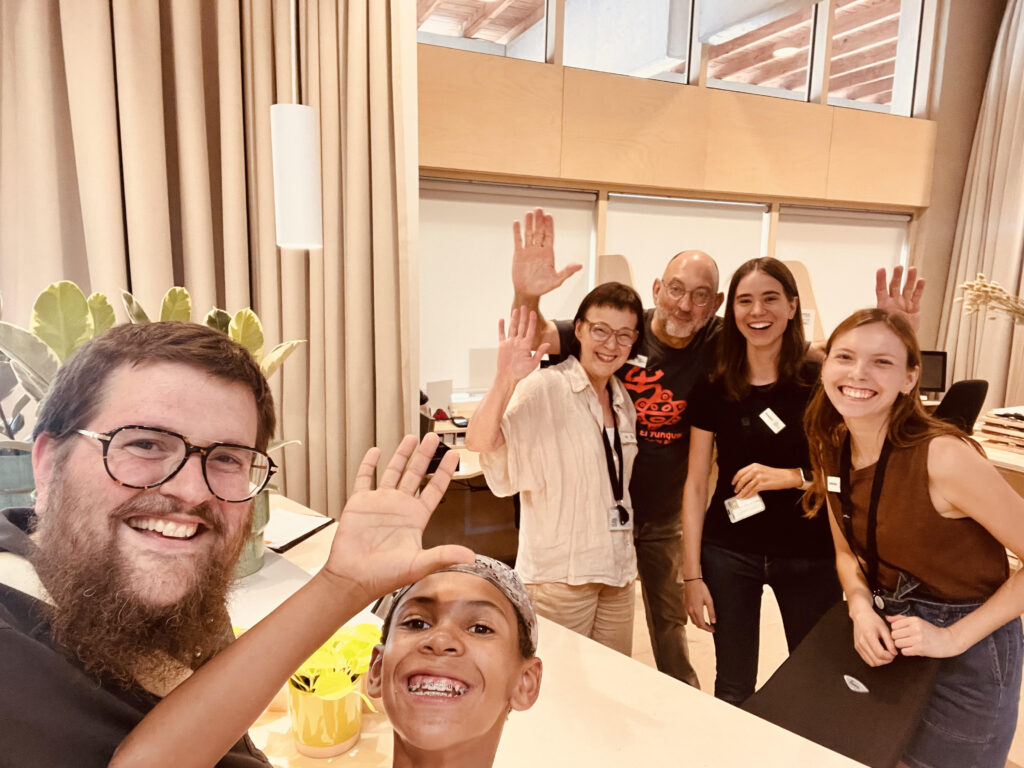The Cardinal Sins
We all know that the 613 mitzvot consist of two types: mitzvot aseh and mitzvot lo taaseh. In contrast to the mitzvot aseh, which offer positive opportunities, the mitzvot lo taaseh teach us what actions to avoid. They are the sur meira (steering clear of the bad) that pre-empts the aseh tov (doing good).
Though all the 365 mitzvot lo taaseh are essential, the Torah describes three of them—avodah zarah (idol worship), shefichut damim (murder), and gilui arayot (inappropriate sexual relationships)—as uniquely problematic because they defile the sanctity of Eretz Yisrael.
Their severity also has halachic significance—they are the only prohibitions we need to avoid at all costs, including sacrificing our lives (yeihareig v’al yaavor). If one is forced to choose between death and violating one of these prohibitions—even in private—one should (generally) choose death. These prohibitions are that severe.
Let us appreciate the reason for the significance of each of these prohibitions.
Avodah Zarah. Avodah zarah is part of the first section of the Aseret Hadibrot and the only prohibition Hashem shared with us personally. In contrast to the last eight dibrot (and the rest of the mitzvot), which Hashem told us through Moshe, the first two—Anochi and Lo Yihyeh—we heard directly from Hashem.
Hashem shared specifically these two because they are the cornerstones of our faith in and relationship with Him. Anochi Hashem Elokecha commands us to believe in Hashem, and Lo yihyeh lecha prohibits serving any other power or entity. We accept and commit ourselves to these two central mitzvot three times a day when we exclaim in the first pasuk of keri’at Shema that Hashem Elokeinu (an affirmation of Anochi HashemElokecha) and Hashem Echad (a confirmation of Lo yihyeh lecha).
Although idol worship is less common and enticing in contemporary society, the prohibition against avodah zarah remains, at least conceptually, relevant.
The prohibition reminds us that we should view Hashem as the world’s only power and the only entity to which we are committed. His service should be our only goal; His principles should be our only ideology. We live in a world in which many people are committed to and passionate about ideologies and movements. We should focus solely on Hashem and His service.
The prohibition against idolatry also reminds us that Hashem is non-physical and beyond our comprehension. Avodah zarah is the attempt to find a physical and relatable representation for Hashem. The prohibition reminds us of Hashem’s greatness as totally beyond our physical, finite world and understanding of reality.
Shefichut Damim. Murder, the next of the three cardinal sins, is also included in the Aseret HaDibrot. Though we value all life and all the living beings that Hashem created, we value human life more because Hashem created us in His image.
Hashem used this idea to explain the prohibition against murder in parashat Noach, when He addressed Noach and his family after the flood. Although Hashem created Adam HaRishon in His own image, He did not initially share this fact with him. Man did not realize the great significance of humanity and thus disrespected and even murdered one another. This began, of course, with Adam’s own children and continued on a larger scale with the world as a whole. Men treated each other like animals. They murdered, stole from, and abused one another to the point where Hashem needed to destroy mankind.
After the flood, when He called upon Noach and his family to leave the ark and restart civilization, Hashem’s first words to them included how He had created man in His image and therefore prohibited murder. As opposed to Adam and his descendants, who were permitted to eat only fruits and vegetables, Hashem now permitted man to kill and eat animals to highlight the difference between animals and man.
Many halachot reflect the Torah’s value of human life and the severity of murder. In addition to the halachah of yeihareig v’al yaavor, the Torah mandates the death penalty for murder. The spilling of human blood can only be atoned for by taking the life of the murderer. Doing so atones for the crime and reminds society to take life (of others and their own) seriously.
Eglah arufah is another halachah that reflects the severity of murder. The Torah teaches us that when we find a corpse and the murderer is unknown, we do not just bury it and move on. Instead, the elders of the city closest to the corpse need to sacrifice a calf that has never worked in a virgin ravine to ask Hashem for atonement for the murder. The Gemara quotes Hashem, Who explains that we waste the potential of the calf in a ravine that has not yet realized its potential to atone for the lost potential of the victim (Sot. 46a).
The value we have for human life extends to murderers as well. The Torah commands us to designate sanctuary cities for those who kill by accident. In addition to protecting the killer, the cities need to offer him all that he needs to live and thrive. The cities need to be equally accessible to those living in all areas of EretzYisrael, and the roads to them must be clearly demarcated and easy to travel. We even send sages to accompany the murderer en route to the city to ensure that the avenger does not take his life along the way.
We even try to protect the life of one who may have murdered intentionally. “Save [members of] the congregation” (Bam. 35:29) tasks the beit din with searching for any possible loophole to acquit the murderer. Because we know that Hashem will bring ultimate justice and, in fact, only He can (Ko. 3:16-17), we are careful not to take a human life unless we are absolutely sure that it is warranted.
Gilui Arayot. Adultery, the last of the three cardinal sins, is also included in the Aseret HaDibrot. Adultery is part of a broader category of prohibited sexual relationships, which also includes incest, homosexuality, bestiality, and relations with a niddah.
{Relationship Goals
The severity of these prohibitions reflects the importance and sensitivity of sexuality. The sexual act is significant for two reasons. The first is that it is how we reproduce. Peru u’revu was the first mitzvah Hashem gave to man. Hashem created and sustains the world, but He needs man to sustain mankind. Many use this idea to explain why the Torah prohibits homosexuality, bestiality, incest (which often produces unhealthy children), and relations with a niddah. One should only have relations that can fulfill the mitzvah of peru u’revu properly.
A second reason for many of these prohibitions reflects a second aspect of the significance of the sexual act. Hashem initially created man and woman as one body because they are truly parts of one whole. Although we need to be separated in order to feel love for one another and best accomplish our missions in this world, we are meant to view our spousal relationship as two halves reconnecting with each other.
As opposed to animals, for whom sexuality is a mere mode of reproduction, the human spousal sexual act is how man and woman “become one flesh.” It is how we reconnect with a part of ourselves. We reproduce by connecting with our true and complete destined selves. We create “one flesh” by achieving “one fleshness” with our spouse.
The Torah prohibits sexuality in any other context because it is a misdirection and desecration of this ideal. It undermines the association of sexuality with reproduction or with the reconnection that the sexual act is supposed to embody.
Another reason for the severity of these prohibitions may be the allure. Like animals, Hashem programmed us to sustain ourselves and our species. We have a strong desire for food and sexual relations. We, of course, are in this world to accomplish much more than animals, and it is thus critical that we channel and curtail these desires.
Onkelos hints at this idea in his translation of the adultery prohibition as “lo taguf—don’t pursue physicality.” Adultery is an overfocus on physicality. A man acts on his attraction to a woman committed to another relationship. The sexual act reflects physical desire, not a real relationship, and is thus prohibited.
The severity of the arayot prohibitions serves as a deterrent and counterbalance to the often seemingly overwhelming physical drives and physical desires.
Rav Reuven Taragin is the Dean of Overseas Students at Yeshivat Hakotel and the Educational Director of World Mizrachi and the RZA.
His new book, Essentials of Judaism, can be purchased at RabbiReuvenTaragin.com.














